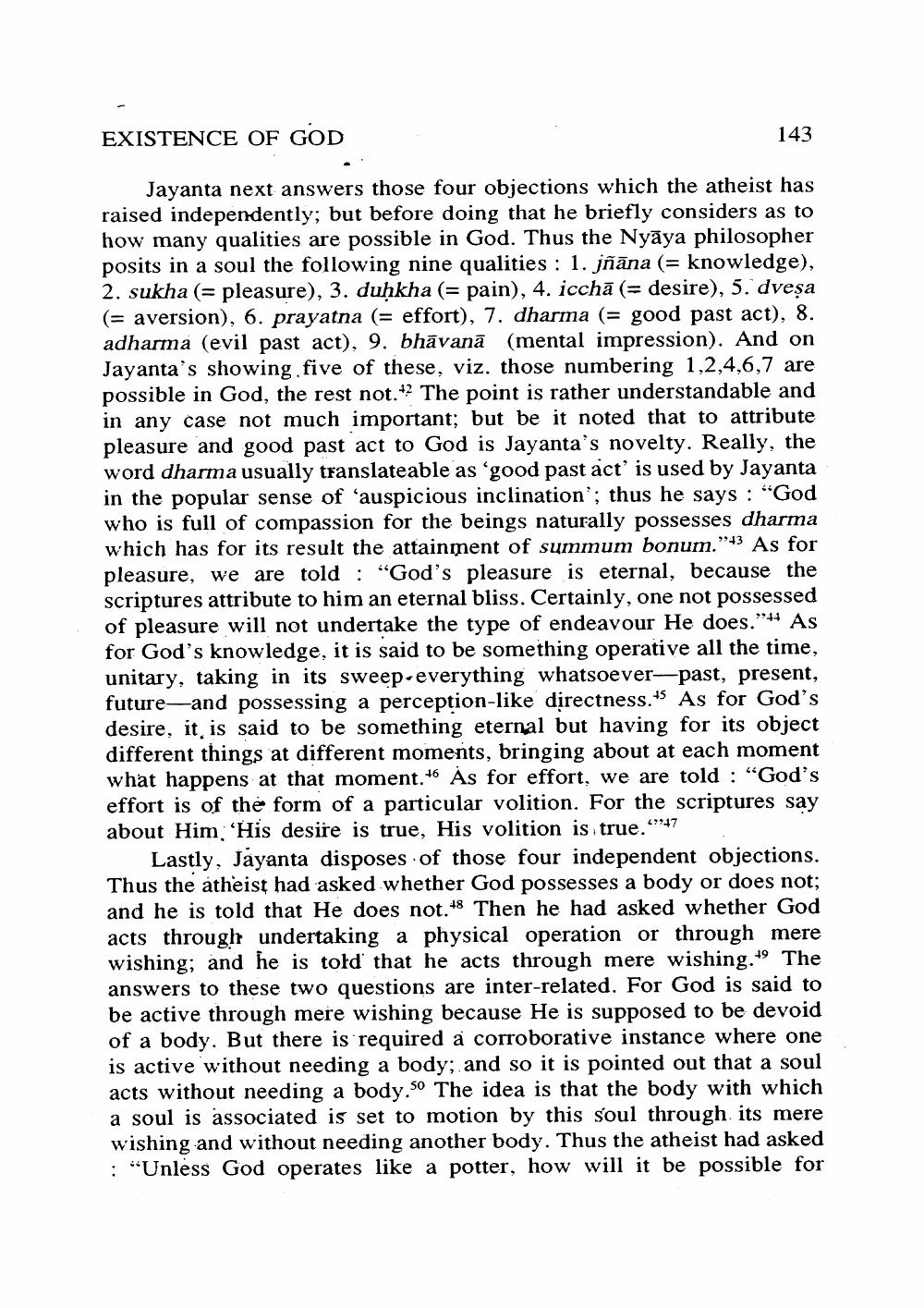________________
EXISTENCE OF GOD
143
Jayanta next answers those four objections which the atheist has raised independently; but before doing that he briefly considers as to how many qualities are possible in God. Thus the Nyāya philosopher posits in a soul the following nine qualities : 1. jñāna (= knowledge), 2. sukha (= pleasure), 3. duḥkha (= pain), 4. icchā (= desire), 5. dveşa (= aversion), 6. prayatna (= effort), 7. dharma (= good past act), 8. adharma (evil past act), 9. bhāvanā (mental impression). And on Jayanta's showing five of these, viz. those numbering 1,2,4,6,7 are possible in God, the rest not.The point is rather understandable and in any case not much important; but be it noted that to attribute pleasure and good past act to God is Jayanta's novelty. Really, the word dharma usually translateable as 'good past act' is used by Jayanta in the popular sense of 'auspicious inclination'; thus he says : “God who is full of compassion for the beings naturally possesses dharma which has for its result the attainment of summum bonum.”43 As for pleasure, we are told: "God's pleasure is eternal, because the scriptures attribute to him an eternal bliss. Certainly, one not possessed of pleasure will not undertake the type of endeavour He does."+ As for God's knowledge, it is said to be something operative all the time, unitary, taking in its sweep-everything whatsoever--past, present, future—and possessing a perception-like directness." As for God's desire, it is said to be something eternal but having for its object different things at different moments, bringing about at each moment what happens at that moment. 16 As for effort, we are told : "God's effort is of the form of a particular volition. For the scriptures say about Him. His desire is true, His volition is true.“:47
Lastly, Jayanta disposes of those four independent objections. Thus the atheist had asked whether God possesses a body or does not; and he is told that He does not. 48 Then he had asked whether God acts through undertaking a physical operation or through mere wishing; and he is told that he acts through mere wishing.9 The answers to these two questions are inter-related. For God is said to be active through mere wishing because He is supposed to be devoid of a body. But there is required a corroborative instance where one is active without needing a body; and so it is pointed out that a soul acts without needing a body.50 The idea is that the body with which a soul is associated is set to motion by this soul through its mere wishing and without needing another body. Thus the atheist had asked : "Unless God operates like a potter, how will it be possible for




